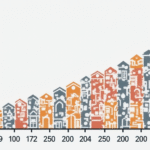Introduction
In any democracy, freedom of expression is one of the fundamental pillars that support political coexistence. It’s the right that allows dissent, questioning, criticism, and even laughter at power. That’s why political caricatures and memes—contemporary forms of satire—are not just jokes; they are vehicles for citizen criticism. However, a recent legislative proposal in Mexico has raised alarms as it aims to penalize the dissemination of expressions deemed “degrading” towards public officials, including images referred to as “memes” or “stickers” spread on social networks. We must ask: can a democratic country punish political humor without betraying the very freedom it claims to protect?
Constitutional Guarantees and Limitations
Mexico’s Constitution enshrines the right to free expression and explicitly prohibits prior censorship. Limitations on this right can only be imposed after the discourse has been uttered (post factum) and must be proportional, necessary, and clearly stated in law, as per both national and international standards protecting freedom of expression. Mexico has also assumed international commitments that expand this protection, and the Inter-American Court of Human Rights has maintained that public officials, due to their position of power, should have a “higher threshold of tolerance” towards criticism, even when it’s acerbic, exaggerated, or satirical. Thus, political humor, however uncomfortable it may be, falls under the protected scope of freedom of expression.
Risks Posed by the Legislative Proposal
- Anticipatory Censorship: If citizens fear penalties for creating a meme or sharing a caricature, the immediate result will be self-censorship: they’ll stop expressing their opinions out of fear.
- Severity of Penalties: While the proposal might be crucial in private matters, doubling penalties when targeting public officials suggests a disproportionate law that directly impacts freedom of expression in the public sphere.
- Political Selectivity: Such laws could be used as tools to punish critical voices or inconvenient journalists instead of safeguarding individuals’ honor or privacy.
Precedents and Consequences
This isn’t the first attempt to legislate in this direction. Recently, penal codes have been amended to include ambiguous figures like “improper digital dissemination” or “cyberbullying,” which can be used against criticism in networks. Although the intention might be to protect personal dignity or prevent abuses, the practical effect could be restricting public debate.
The Social Function of Political Criticism
Political criticism, even when biting or mocking, serves a social and democratic function. Caricatures have accompanied the history of freedom, from José Guadalupe Posada’s satires to today’s memes on platforms like Facebook. Laughter becomes a form of resistance, a way to tell power it’s not inviolable. Mature democracies understand that irony doesn’t weaken institutions; it strengthens them by revealing that power can be questioned without fear.
Balancing Freedom of Expression and Dignity
While freedom of expression isn’t absolute, there are legitimate limits: protecting personal honor, privacy, and national security. However, restrictions must be clear, necessary, and proportional. Not everything offensive is illegal, and not every criticism constitutes defamation or slander. The distinction lies in the real harm caused, not mere discomfort.
Key Questions and Answers
- Q: What is the issue at hand?A: A proposed law in Mexico aims to penalize expressions deemed “degrading” towards public officials, including memes and stickers shared on social media.
- Q: Why is this concerning?A: It risks anticipatory censorship, disproportionate penalties, and political selectivity, threatening freedom of expression.
- Q: What’s the role of satire in democracy?A: Satire, including political caricatures and memes, serves as a form of citizen criticism, contributing to democratic health by challenging power without fear.
- Q: How should a democracy balance dignity and free speech?A: By ensuring laws are proportional, precise, and respect the difference between legitimate honor protection and dissent censorship.






